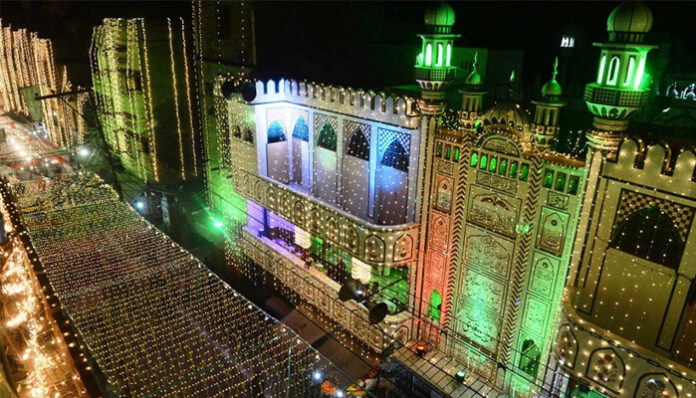The Federal Government has declared September 17 as a public holiday in celebration of Eid Milad-un-Nabi (SAW), a day that commemorates the birth of the Prophet Muhammad (SAW). This day is one of the most significant in the Islamic calendar, as Muslims across the globe honor the life and teachings of Islam’s final prophet, a figure who embodies mercy, justice, and compassion.
Significance of Eid Milad-un-Nabi (SAW)
Eid Milad-un-Nabi (SAW) is traditionally celebrated on the 12th of Rabi’ al-Awwal, the third month in the Islamic calendar. It marks the birth of the Prophet Muhammad (SAW), who was born in Mecca in 570 CE. For Muslims, this occasion serves as a reminder of the Prophet (SAW) mission, his message of peace, and his role in delivering the Holy Quran to mankind.
The celebrations, however, are not uniform across the Islamic world. In Pakistan and many other Muslim-majority countries, the day is observed with great devotion and community spirit. In contrast, some sects of Islam, such as the Salafi and Wahhabi traditions, do not celebrate the Prophet’s (SAW) birthday, viewing it as an innovation.
Public Holiday and Nationwide Celebrations
On September 17, all government offices, educational institutions, and businesses will remain closed, providing citizens the opportunity to fully engage in the day’s activities. Across the country, mosques will hold special prayers and sermons, focusing on the life, character, and teachings of the Prophet Muhammad (SAW).
In major cities like Karachi, Lahore, and Islamabad, streets will be adorned with green flags, banners, and lights—a color symbolizing Islam and the Prophet’s (SAW) message. Homes, mosques, and businesses will be illuminated, creating a festive atmosphere that reflects joy and reverence.
Processions and Gatherings
Large processions are a hallmark of Eid Milad-un-Nabi (SAW) celebrations in Pakistan. Devotees take to the streets, marching while chanting Naats (poems in praise of the Prophet Muhammad (SAW)) and waving banners. These processions often include decorated vehicles, green flags, and participants dressed in white or green clothing to symbolize purity and devotion.
In addition to processions, religious scholars and leaders will deliver lectures and sermons, often at public gatherings or in mosques. These discussions typically revolve around the Prophet’s (SAW) exemplary conduct, his teachings of peace, and his pivotal role in shaping Islamic society.
Charity and Acts of Kindness
Another key aspect of Eid Milad-un-Nabi (SAW) is the spirit of charity and kindness. Many individuals and organizations use this occasion to support those in need by offering food, clothing, and other essentials. Free meals, known as Langar, are often distributed, especially in areas where large crowds gather for religious events.
This giving aligns with the Prophet’s (SAW) teachings of compassion and care for the less fortunate. For Muslims, the day celebrates the birth of the beloved Prophet (SAW) while reminding them to follow his example of mercy and generosity.
Media and Cultural Events
To celebrate Eid Milad-un-Nabi (SAW), television channels and radio stations will broadcast special programs. These include recitations from the Holy Quran, Naats, and documentaries on the life of Prophet Muhammad (SAW). The goal is to inform the public about the significance of this occasion and its role in Islamic history.
In addition, schools and community centers may organize competitions for children. These events encourage kids to recite Naats or share stories from the Prophet’s (SAW) life. By doing so, younger generations are inspired to understand and appreciate the teachings of the Prophet (SAW).
A Time for Reflection
While the day is filled with celebratory activities, Eid Milad-un-Nabi (SAW) also serves as a time for spiritual reflection. Many families use the holiday to come together in prayer, reflect on the Prophet (SAW) contributions to humanity, and discuss how they can incorporate his teachings into their daily lives.
For Muslims, the Prophet Muhammad (SAW) stands as the ultimate role model, and Eid Milad-un-Nabi (SAW) provides an opportunity to not only celebrate his birth but also to reaffirm their commitment to following his path of righteousness, kindness, and faith.
Conclusion
Eid Milad-un-Nabi (SAW) is more than just a public holiday; it is a day of deep spiritual significance. With processions, prayers, charitable acts, and community gatherings, the day celebrates the life and message of the Prophet Muhammad (SAW) while promoting unity and compassion among Muslims.

